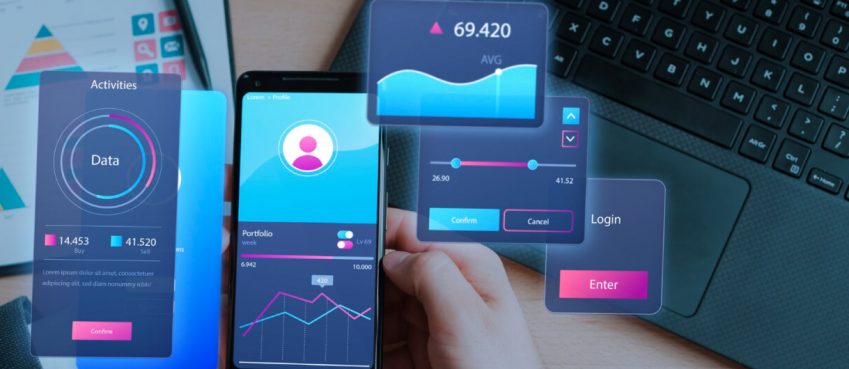
Formal proof of identity is becoming more important in today’s digital age. It allows individuals to access essential services and benefits, including financial services. One billion people globally currently lack access to formal proof of identity, creating significant barriers to financial inclusion.
Digital identity has the potential to break down barriers and bridge the gap in financial inclusion. It enables individuals to establish and prove their identity remotely through identity verification api without the need for in-person verification, opening the door to a range of financial services.
In this article, we’ll explore how digital identity is breaking down barriers to financial inclusion and creating new opportunities for individuals and SMBs around the world. We’ll delve into the benefits of digital identity, the challenges it faces, and the potential for a more inclusive future powered by digital IDs.
Digital Identity: A Key to Financial Inclusion
Digital identity has become a crucial element in the quest for financial inclusion. With over one billion people worldwide needing more formal proof of identity, financial institutions still need a way to authenticate users and provide them access to financial services. However, the development of digital identity systems has the potential to bridge this gap and empower unbanked individuals to participate in the global economy.
One such system is India’s Aadhaar, dubbed the world’s most sophisticated digital ID system by the World Bank Chief Economist, Paul Romer. The Aadhaar system has enabled over 1.2 billion Indians to access a range of government services and payments, which would have been otherwise out of reach. Other countries are also taking note and are implementing national ID schemes with similar features.
These digital identity systems are designed to be inclusive, ensuring all individuals can access financial services regardless of socioeconomic status. By authorizing identities and verifying transactions in real time, banks and smaller lenders can facilitate the growth of a digital banking ecosystem that cultivates stability, transparency, fairness, and interoperability.
[read_more]Facilitating Inclusive Financial Services through Digital Identity
Digital identity has emerged as a powerful tool in facilitating inclusive financial services, enabling millions of individuals worldwide to participate in the global economy. With the development of digital identity systems, financial institutions can authenticate users and provide access to financial services to previously excluded individuals.
One of the ways digital identity facilitates financial inclusion is through digital payments. Digital payment systems, such as mobile wallets and online payment platforms, are increasingly being used to transfer funds, pay bills, and make purchases. These payment systems have revolutionized financial services, especially in developing countries, where traditional banking services are often inaccessible.
Digital identity also plays a crucial role in financial inclusion by enabling credit scoring and lending. Lenders without a formal credit history can use alternative data sources, such as payment history and social media activity, to evaluate creditworthiness. By leveraging digital identity, lenders can offer cheaper and more accessible loans to individuals who would have otherwise been denied access to credit.
Building a Flourishing Digital-Banking Ecosystem with Digital Identity
With the rise of e-commerce and the growing demand for digital financial services, banks, and financial institutions are rapidly evolving their digital banking services to keep up with customer demands. This has led to an increasing need for reliable and secure digital identity verification to protect customers and financial institutions.
Digital identity verification can be integrated into various digital banking services, including online account opening, loan applications, and fund transfers. By enabling a secure and seamless verification process, digital identity systems can help financial institutions streamline operations, reduce costs, and provide better customer experiences.
In addition to streamlining operations, digital identity can help banks and financial institutions expand their customer base by offering services to previously excluded population segments. This includes underbanked individuals and small and medium-sized businesses (SMBs), who often need more formal identification to access traditional banking services.
Breaking Down Barriers to Digital Payments with Digital Identity
Digital identity is also crucial in breaking down barriers to digital payments. In many countries, the lack of a formal identification system has prevented people from accessing digital payment services, which are often tied to a bank account or credit card. However, digital identity can provide a secure and reliable way to authenticate users, opening up digital payment options to more people.
For example, digital identity can enable mobile payments, which have become increasingly popular in recent years. Mobile payments allow users to pay for goods and services using their smartphones without the need for cash or physical cards. To use mobile payments, users typically need to link their payment method to a digital identity, such as a phone number or email address.
Digital identity can also facilitate cross-border payments, which have traditionally been complex and time-consuming. By enabling secure and reliable identification of both senders and recipients, digital identity can help streamline the cross-border payment process and reduce costs for customers and financial institutions.
The Role of a Digital Stability Board in Ensuring Safe and Efficient Digital Commerce
As digital identity becomes more widespread, it is crucial to ensure that digital commerce remains safe and efficient. This is where a Digital Stability Board (DSB) can play a critical role. The DSB would function as a regulatory body that oversees digital commerce, ensuring that it remains stable and secure.
The DSB would set standards for digital identity and financial technology companies, ensuring they meet specific requirements before operating. They would also provide guidance and support to companies to help them meet these requirements and monitor compliance to ensure that they are being upheld.
Furthermore, the DSB would facilitate stakeholder communication, including financial institutions, technology companies, and government agencies. This would help identify and address potential risks or issues before they become major problems.
Conclusion
By leveraging digital identity, financial institutions can provide access to financial services to unbanked individuals, empowering them to participate in the global economy. In addition, digital identity can help to facilitate the inclusion of SMBs in digital banking, spurring economic growth and job creation.
A digital identity is a powerful tool that can help to advance inclusive financial services and build a more equitable and prosperous global economy. By continuing to develop and improve digital identity systems and supporting their safe and efficient use, we can unlock the full potential of digital finance and promote financial inclusion for all.
Top 10 News
-
01
Top 10 Deep Learning Multimodal Models & Their Uses
Tuesday August 12, 2025
-
02
10 Google AI Mode Facts That Every SEOs Should Know (And Wha...
Friday July 4, 2025
-
03
Top 10 visionOS 26 Features & Announcement (With Video)
Thursday June 12, 2025
-
04
Top 10 Veo 3 AI Video Generators in 2025 (Compared & Te...
Tuesday June 10, 2025
-
05
Top 10 AI GPUs That Can Increase Work Productivity By 30% (W...
Wednesday May 28, 2025
-
06
[10 BEST] AI Influencer Generator Apps Trending Right Now
Monday March 17, 2025
-
07
The 10 Best Companies Providing Electric Fencing For Busines...
Tuesday March 11, 2025
-
08
Top 10 Social Security Fairness Act Benefits In 2025
Wednesday March 5, 2025
-
09
Top 10 AI Infrastructure Companies In The World
Tuesday February 11, 2025
-
10
What Are Top 10 Blood Thinners To Minimize Heart Disease?
Wednesday January 22, 2025







